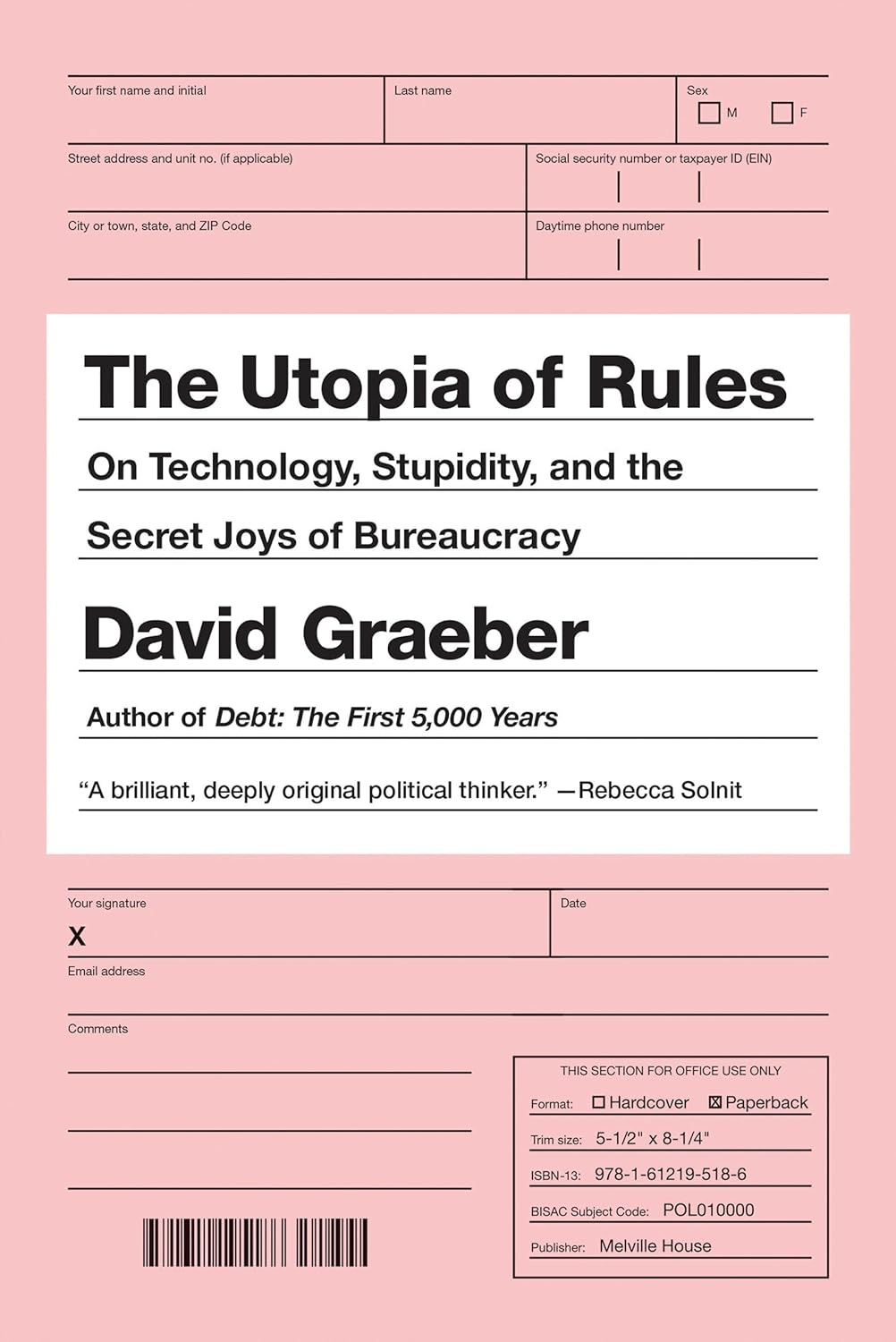Book Freak 167: The Utopia of Rules
On Technology, Stupidity, and the Secret Joys of Bureaucracy

In The Utopia of Rules (available as a free ebook from the Anarchist Library), the late anthropologist David Graeber explores the pervasive role of bureaucracy in modern life and its often counterintuitive effects. Published posthumously in 2015, this collection of essays challenges our assumptions about bureaucracy, technology, and the nature of freedom in contemporary society.
Graeber, known for his work on debt and his involvement in the Occupy Wall Street movement, brings his anthropological perspective to bear on the seemingly mundane world of paperwork, regulations, and administrative procedures. He argues that bureaucracy, far from being a necessary evil, has become a central feature of our lives that shapes our experiences and imaginations in profound ways.
Three key insights from the book:
Bureaucracy has become the water in which we swim
While people used to talk about bureaucracy constantly in the mid-20th century, it has now become so ubiquitous that we hardly notice it. Bureaucratic procedures and mindsets have invaded nearly every aspect of our lives, from filling out forms to interacting with automated systems.
“Nowadays, nobody talks much about bureaucracy. But in the middle of the last century, particularly in the late sixties and early seventies, the word was everywhere. There were sociological tomes with grandiose titles like A General Theory of Bureaucracy, The Politics of Bureaucracy, or even The Bureaucratization of the World, and popular paperback screeds with titles like Parkinson’s Law, The Peter Principle, or Bureaucrats: How to Annoy Them.”
The “Iron Law of Liberalism” leads to more, not less, bureaucracy
“The Iron Law of Liberalism states that any market reform, any government initiative intended to reduce red tape and promote market forces will have the ultimate effect of increasing the total number of regulations, the total amount of paperwork, and the total number of bureaucrats the government employs.”
The bureaucratization of academia stifles innovation
The increasing bureaucratization of universities has fundamentally changed the nature of academic work, squeezing out creativity and originality in favor of marketability and conformity.
“There was a time when academia was society’s refuge for the eccentric, brilliant, and impractical. No longer. It is now the domain of professional self-marketers. As for the eccentric, brilliant, and impractical: it would seem society now has no place for them at all… You [will] spend your time writing proposals rather than doing research. Worse, because your proposals are judged by your competitors you cannot follow your curiosity, but must spend your effort and talents on anticipating and deflecting criticism rather than on solving the important scientific problems.”
What to do about bureaucratization
While Graeber was more focused on analysis than prescription, he did offer several actionable ideas to reverse the tide of bureaucracy, including:
- Reclaim imagination and play as important aspects of social and political life
- Explore alternative, more participatory forms of social organization
- Reduce reliance on violence (including structural violence) in social organization
- Cultivate social relations based on trust rather than bureaucratic rules
- Promote transparency in existing bureaucratic systems
- Explore how technology might be used to reduce, rather than increase, bureaucracy
Thanks to Dave Boss for the recommendation! If you want to recommend a book for Book Freak, please let me know in the comments.
08/14/24





